-
 Bitcoin
Bitcoin $88,575.4133
1.33% -
 Ethereum
Ethereum $1,623.1195
-0.94% -
 Tether USDt
Tether USDt $1.0000
0.01% -
 XRP
XRP $2.1040
-0.96% -
 BNB
BNB $605.9509
0.36% -
 Solana
Solana $139.9862
-0.01% -
 USDC
USDC $1.0000
0.00% -
 Dogecoin
Dogecoin $0.1637
1.09% -
 TRON
TRON $0.2482
1.98% -
 Cardano
Cardano $0.6392
-1.18% -
 Chainlink
Chainlink $13.3059
-1.43% -
 UNUS SED LEO
UNUS SED LEO $9.0739
-4.00% -
 Avalanche
Avalanche $20.1274
-2.31% -
 Stellar
Stellar $0.2484
-4.08% -
 Sui
Sui $2.3116
2.05% -
 Shiba Inu
Shiba Inu $0.0...01252
-0.73% -
 Toncoin
Toncoin $2.9119
-3.20% -
 Hedera
Hedera $0.1725
0.04% -
 Bitcoin Cash
Bitcoin Cash $346.0750
1.19% -
 Hyperliquid
Hyperliquid $18.2428
0.88% -
 Litecoin
Litecoin $79.3117
-2.01% -
 Polkadot
Polkadot $3.7471
-4.36% -
 Dai
Dai $1.0000
0.00% -
 Bitget Token
Bitget Token $4.4341
-0.56% -
 Ethena USDe
Ethena USDe $0.9992
0.00% -
 Pi
Pi $0.6353
0.33% -
 Monero
Monero $216.8188
0.48% -
 Pepe
Pepe $0.0...08105
3.48% -
 Uniswap
Uniswap $5.3764
-1.05% -
 OKB
OKB $51.0901
0.18%
What is the custody mechanism of an Ethereum ETF?
Institutional-grade custody mechanisms, employed by third-party custodians or in-house, provide enhanced security, efficiency, and regulatory compliance for Ethereum ETFs.
Feb 18, 2025 at 04:36 pm
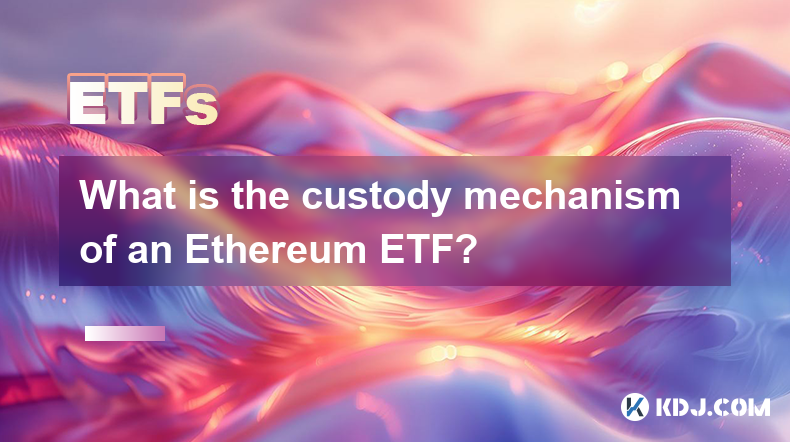
Key Points:
- Understanding Ethereum ETFs
- Custody Mechanisms for Ethereum ETFs
- Benefits of Institutional-Grade Custody
- Security Considerations for Ethereum ETF Custody
- Regulatory Compliance and Transparency
What is an Ethereum ETF?
An Ethereum ETF (exchange-traded fund) is a type of security that tracks the price of Ethereum (ETH), a popular cryptocurrency. It allows investors to gain exposure to the cryptocurrency market without directly holding or managing Ethereum themselves. ETFs are traded like traditional stocks on exchanges and offer investors various advantages, such as diversification, liquidity, and lower entry barriers compared to buying cryptocurrencies directly.
Custody Mechanisms for Ethereum ETFs
The custody of Ethereum ETFs plays a crucial role in ensuring the security and integrity of the investments. The following are common custody mechanisms employed for Ethereum ETFs:
- Third-Party Custodians: Custodians are regulated financial institutions that specialize in securely storing and managing assets. ETFs can engage third-party custodians to hold the underlying Ethereum and ensure its safekeeping and monitoring.
- In-House Custody: Some ETF issuers may maintain their own internal custody arrangements, leveraging advanced security protocols and infrastructure to store and manage the Ethereum. This approach allows for greater control over the assets and custody process.
- Underlying Ethereum Protocol: Ethereum ETFs can also utilize the security features of the underlying Ethereum blockchain. Smart contracts and decentralized protocols can be employed to manage and track the custody of the underlying Ethereum.
Benefits of Institutional-Grade Custody
Institutional-grade custody provides several advantages for Ethereum ETFs:
- Enhanced Security: Regulated custodians adhere to strict security protocols and standards, including robust encryption, multi-factor authentication, and geographical segregation of assets.
- Operational Efficiency: Custodians offer scalable infrastructure and operational support, ensuring efficient and timely execution of ETF transactions.
- Regulatory Compliance: Custodians maintain compliance with applicable regulations and standards, such as anti-money laundering (AML) and know-your-customer (KYC) requirements.
Security Considerations for Ethereum ETF Custody
To ensure the security of Ethereum ETFs, several factors should be considered:
- Cybersecurity Threats: Custodians need to implement robust cybersecurity measures to mitigate risks such as phishing attacks, malware, and hacks.
- Physical Security: The physical safeguarding of Ethereum is crucial, involving secure storage facilities, armed guards, and surveillance systems.
- Smart Contract Vulnerability: If the underlying Ethereum protocol or smart contracts experience vulnerabilities, it could impact the custody of the underlying Ethereum.
Regulatory Compliance and Transparency
Transparency and regulatory compliance are essential aspects of Ethereum ETF custody. ETFs are subject to disclosure requirements and regular audits to ensure transparency and accountability. Custodians must also adhere to relevant regulations and undergo periodic reporting and compliance audits.
FAQs
- Is Ethereum ETF custody different from the custody of physical Ethereum?
Yes, while both aim to protect the underlying asset, Ethereum ETF custody involves ETF-specific requirements, such as institutional-grade custody and regulatory compliance, which may not apply to directly holding Ethereum.
- Who has access to the Ethereum stored for an ETF?
The arrangement for access will depend on the specific custody model employed. Generally, only authorized custodians and asset managers, subject to rigorous access controls, would have access to the underlying Ethereum.
- What are the risks associated with Ethereum ETF custody?
Potential risks include cybersecurity breaches, theft, fraud, regulatory changes, and the inherent volatility of Ethereum's price.
- How can investors evaluate the security of an Ethereum ETF's custody mechanism?
Investors should review the custody arrangements, regulatory compliance measures, and security protocols implemented by the ETF custodian and the ETF issuer. The level of transparency and independent audits can provide insights into the effectiveness of the custody mechanism.
Disclaimer:info@kdj.com
The information provided is not trading advice. kdj.com does not assume any responsibility for any investments made based on the information provided in this article. Cryptocurrencies are highly volatile and it is highly recommended that you invest with caution after thorough research!
If you believe that the content used on this website infringes your copyright, please contact us immediately (info@kdj.com) and we will delete it promptly.
- British drug gang makes its own crypto to launch money
- 2025-04-22 18:50:12
- US Bitcoin ETFs Record Their Largest Daily Inflows Since January
- 2025-04-22 18:50:12
- Days before his 2025 inauguration, President Donald Trump announced the launch of his meme coin, a form of cryptocurrency.
- 2025-04-22 18:45:12
- XRP Community Figures Highlight Final Deadlines for SEC Decisions on Multiple Spot-Based XRP ETF Applications
- 2025-04-22 18:45:12
- Is It Time to Throw $1,000 Into Raydium Right Now? RAY Price Outlook
- 2025-04-22 18:40:12
- Mantra Burns 300 Million OM Tokens, Equivalent to 16.5% of the Total Supply
- 2025-04-22 18:40:12
Related knowledge
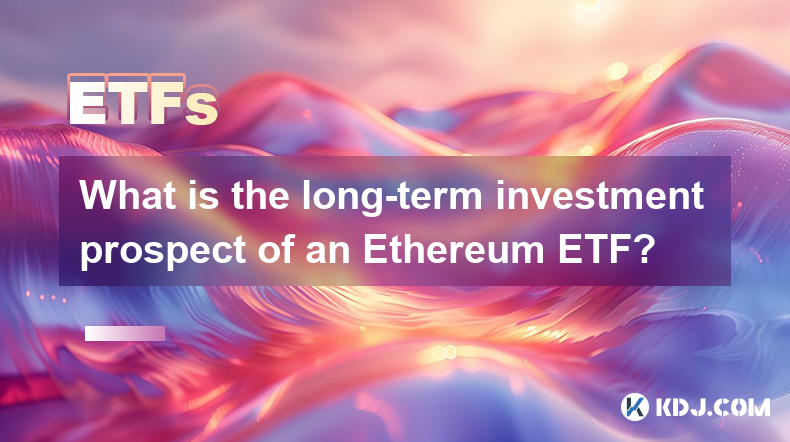
What is the long-term investment prospect of an Ethereum ETF?
Mar 18,2025 at 03:01pm
Key Points:Uncertainty surrounds the long-term prospects of an Ethereum ETF due to regulatory hurdles and market volatility.Approval hinges on regulatory clarity regarding cryptocurrencies, especially concerning investor protection and market manipulation.Successful ETF launches could boost Ethereum's price and adoption, but failure could negatively imp...
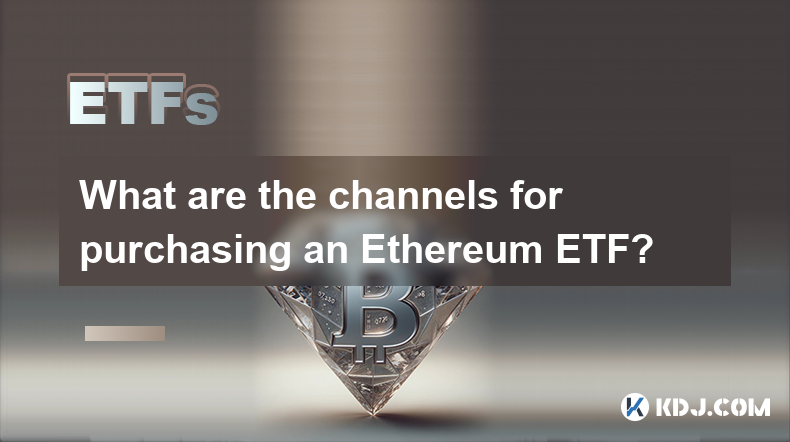
What are the channels for purchasing an Ethereum ETF?
Mar 18,2025 at 01:49am
Key Points:Currently, there are no Ethereum ETFs available for direct purchase by the general public in most major markets.Access to Ethereum exposure through ETFs is limited, mainly through futures-based ETFs.Purchasing Ethereum directly or through other investment vehicles remains a viable alternative.Regulatory hurdles and market complexities signifi...
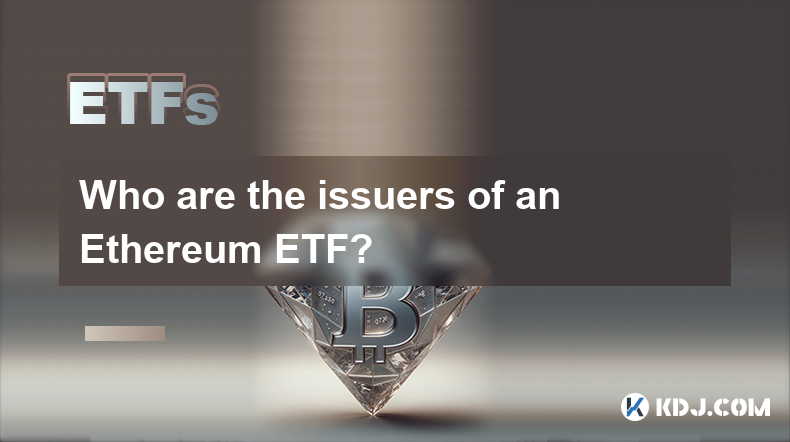
Who are the issuers of an Ethereum ETF?
Mar 19,2025 at 08:07pm
Key Points:There are no currently approved Ethereum ETFs in the US, meaning no single issuer can be definitively named. However, several firms have filed applications.The issuers of potential Ethereum ETFs will be large, established financial institutions, typically asset management companies.The specific requirements for ETF issuers are stringent and o...
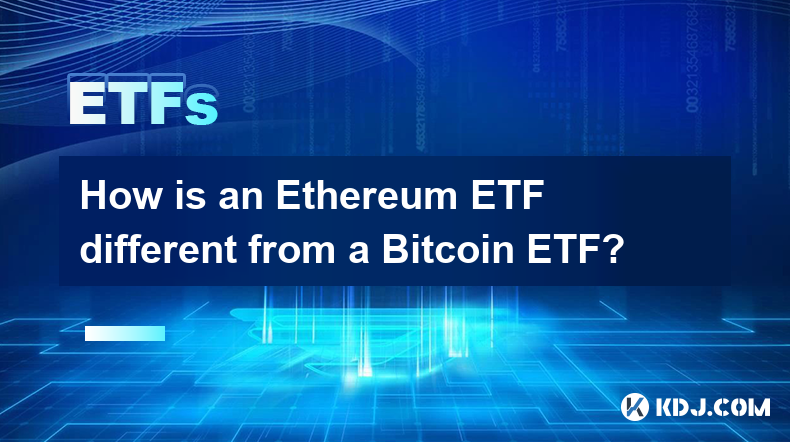
How is an Ethereum ETF different from a Bitcoin ETF?
Mar 17,2025 at 10:55am
Key Points:Underlying Asset: The core difference lies in the underlying asset: an Ethereum ETF tracks the price of Ether (ETH), while a Bitcoin ETF tracks the price of Bitcoin (BTC).Technology and Use Cases: Ethereum's blockchain supports smart contracts and decentralized applications (dApps), creating a distinct technological and investment narrative c...
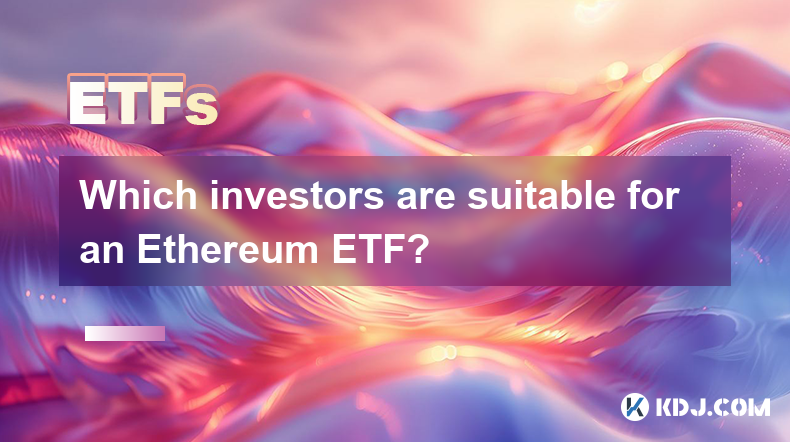
Which investors are suitable for an Ethereum ETF?
Mar 16,2025 at 05:50pm
Key Points:Risk Tolerance: Ethereum ETF investment requires a high risk tolerance due to the volatility of the cryptocurrency market.Investment Goals: Investors seeking long-term growth potential and exposure to the Ethereum ecosystem are suitable candidates.Investment Horizon: A longer-term investment horizon is crucial to weather market fluctuations.U...
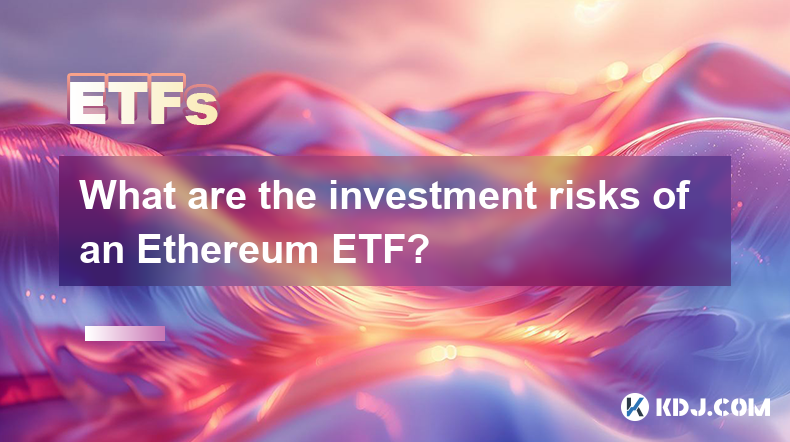
What are the investment risks of an Ethereum ETF?
Mar 18,2025 at 02:12am
Key Points:Price Volatility: Ethereum's price is highly volatile, impacting ETF share prices.Regulatory Uncertainty: Changes in regulatory landscapes can significantly affect ETF trading and performance.Market Manipulation: The potential for market manipulation, particularly in smaller ETFs, exists.Underlying Asset Risk: Risks associated with the Ethere...

What is the long-term investment prospect of an Ethereum ETF?
Mar 18,2025 at 03:01pm
Key Points:Uncertainty surrounds the long-term prospects of an Ethereum ETF due to regulatory hurdles and market volatility.Approval hinges on regulatory clarity regarding cryptocurrencies, especially concerning investor protection and market manipulation.Successful ETF launches could boost Ethereum's price and adoption, but failure could negatively imp...

What are the channels for purchasing an Ethereum ETF?
Mar 18,2025 at 01:49am
Key Points:Currently, there are no Ethereum ETFs available for direct purchase by the general public in most major markets.Access to Ethereum exposure through ETFs is limited, mainly through futures-based ETFs.Purchasing Ethereum directly or through other investment vehicles remains a viable alternative.Regulatory hurdles and market complexities signifi...

Who are the issuers of an Ethereum ETF?
Mar 19,2025 at 08:07pm
Key Points:There are no currently approved Ethereum ETFs in the US, meaning no single issuer can be definitively named. However, several firms have filed applications.The issuers of potential Ethereum ETFs will be large, established financial institutions, typically asset management companies.The specific requirements for ETF issuers are stringent and o...

How is an Ethereum ETF different from a Bitcoin ETF?
Mar 17,2025 at 10:55am
Key Points:Underlying Asset: The core difference lies in the underlying asset: an Ethereum ETF tracks the price of Ether (ETH), while a Bitcoin ETF tracks the price of Bitcoin (BTC).Technology and Use Cases: Ethereum's blockchain supports smart contracts and decentralized applications (dApps), creating a distinct technological and investment narrative c...

Which investors are suitable for an Ethereum ETF?
Mar 16,2025 at 05:50pm
Key Points:Risk Tolerance: Ethereum ETF investment requires a high risk tolerance due to the volatility of the cryptocurrency market.Investment Goals: Investors seeking long-term growth potential and exposure to the Ethereum ecosystem are suitable candidates.Investment Horizon: A longer-term investment horizon is crucial to weather market fluctuations.U...

What are the investment risks of an Ethereum ETF?
Mar 18,2025 at 02:12am
Key Points:Price Volatility: Ethereum's price is highly volatile, impacting ETF share prices.Regulatory Uncertainty: Changes in regulatory landscapes can significantly affect ETF trading and performance.Market Manipulation: The potential for market manipulation, particularly in smaller ETFs, exists.Underlying Asset Risk: Risks associated with the Ethere...
See all articles























































































